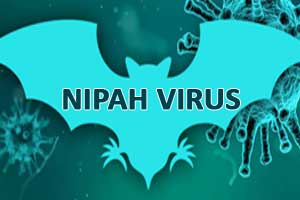- Home
- Medical news & Guidelines
- Anesthesiology
- Cardiology and CTVS
- Critical Care
- Dentistry
- Dermatology
- Diabetes and Endocrinology
- ENT
- Gastroenterology
- Medicine
- Nephrology
- Neurology
- Obstretics-Gynaecology
- Oncology
- Ophthalmology
- Orthopaedics
- Pediatrics-Neonatology
- Psychiatry
- Pulmonology
- Radiology
- Surgery
- Urology
- Laboratory Medicine
- Diet
- Nursing
- Paramedical
- Physiotherapy
- Health news
- Fact Check
- Bone Health Fact Check
- Brain Health Fact Check
- Cancer Related Fact Check
- Child Care Fact Check
- Dental and oral health fact check
- Diabetes and metabolic health fact check
- Diet and Nutrition Fact Check
- Eye and ENT Care Fact Check
- Fitness fact check
- Gut health fact check
- Heart health fact check
- Kidney health fact check
- Medical education fact check
- Men's health fact check
- Respiratory fact check
- Skin and hair care fact check
- Vaccine and Immunization fact check
- Women's health fact check
- AYUSH
- State News
- Andaman and Nicobar Islands
- Andhra Pradesh
- Arunachal Pradesh
- Assam
- Bihar
- Chandigarh
- Chattisgarh
- Dadra and Nagar Haveli
- Daman and Diu
- Delhi
- Goa
- Gujarat
- Haryana
- Himachal Pradesh
- Jammu & Kashmir
- Jharkhand
- Karnataka
- Kerala
- Ladakh
- Lakshadweep
- Madhya Pradesh
- Maharashtra
- Manipur
- Meghalaya
- Mizoram
- Nagaland
- Odisha
- Puducherry
- Punjab
- Rajasthan
- Sikkim
- Tamil Nadu
- Telangana
- Tripura
- Uttar Pradesh
- Uttrakhand
- West Bengal
- Medical Education
- Industry
Fruit bats- source of Nipah outbreak in 2 Kerala districts, confirms ICMR

New Delhi: The Indian Council of Medical Research has confirmed that fruit bats were the primary source of the Nipah outbreak in Kerala's Kozhikode and Malappuram districts, where 17 people died due to the virus earlier this year.
Initially, a central medical team had ruled out bats as the primary source of the infection after the samples collected from bats in two Kerala districts tested negative.
Later, another medical team in its report to the Union health ministry said bats cannot be ruled out as the samples were collected from insectivorous bats, which are not known to be Nipah carriers.
An ICMR official said the samples from fruit bats tested positive for the virus, confirming that they were the source of Nipah infection in Kozhikode and Malappuram districts.
The natural host of the virus are fruit bats of the Pteropodidae family, Pteropus genus. Intermediate hosts of this instance were found to be pigs.
The outbreak of Nipah virus was first reported in Kampung Sungai Nipah, Malaysia in 1998.
There is no vaccine or drug to treat Nipah infection. The primary treatment for human cases is intensive supportive care.
According to the World Health Organisation, human infections range from asymptomatic infection, acute respiratory infection (mild, severe), and fatal encephalitis.
Infected people initially develop influenza-like symptoms of fever, headache, myalgia (muscle pain), vomiting and sore throat.
This can be followed by dizziness, drowsiness, altered consciousness, and neurological signs that indicate acute encephalitis.
Some people can also experience acute respiratory distress.
Encephalitis and seizures occur in severe cases, progressing to coma within 24-48 hours.
Medical Dialogues Bureau consists of a team of passionate medical/scientific writers, led by doctors and healthcare researchers. Our team efforts to bring you updated and timely news about the important happenings of the medical and healthcare sector. Our editorial team can be reached at editorial@medicaldialogues.in.


